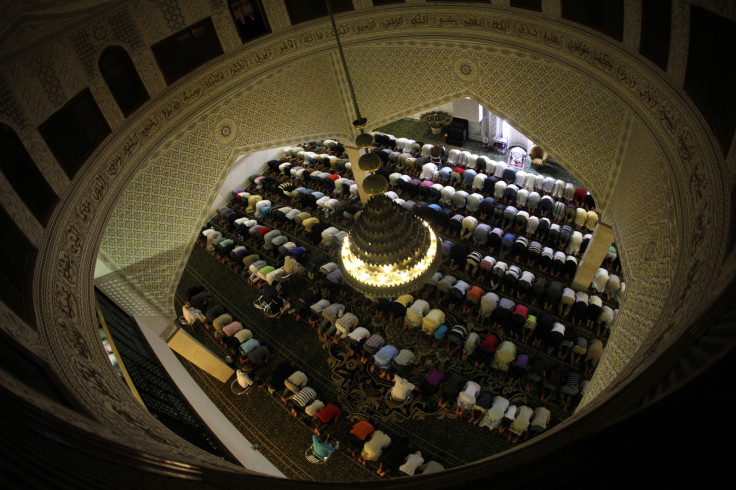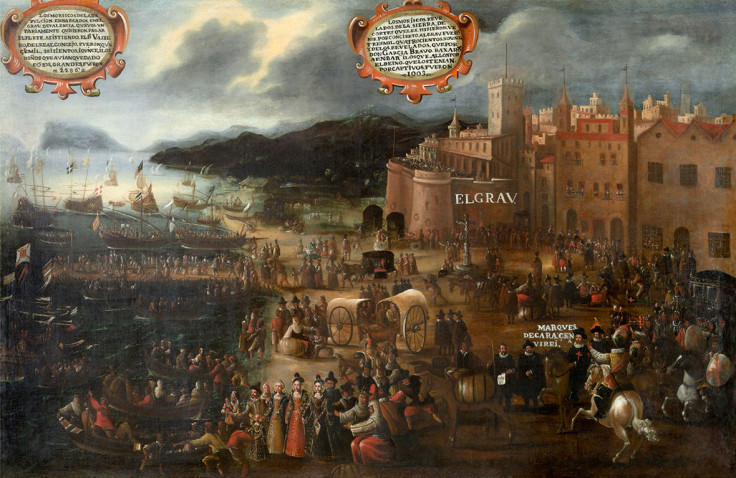400 years ago Spain forcibly converted Muslims to Christianity – then expelled them. Have we learned nothing?
Of all the historical comparisons being made, the brutal Moriscos' exodus should serve as a lesson for the West.

Historical comparisons and parallels have become part and parcel of the dark and sinister politics of the early 21<sup>st century. Foreign policy hawks routinely describe any reluctance on the part of Western states to bomb the latest enemy du jour as another "Munich". Jihadists refer back to the Middle Ages and describe Western armies in the Middle East as "Zionist Crusaders". More recently, media pundits have compared the resurgent hyper-nationalism and xenophobia-driven populism of Trump, Brexit and the alt-Right to the rise of fascism in the 1930s.
Radical Islamist groups and their "counter-jihadist" enemies have a similar fondness for history. Osama bin Laden, Isis, Anders Breivik and a plethora of counter-jihadists have all attempted to use a very politicised understanding of the past to give emotional weight and grandiosity to their respective "wars", whether they are referring to the Crusades or the 1683 Ottoman assault on Vienna.
One episode is surprisingly absent from our era of terror wars and terrorist atrocity. Between 1609 and 1614 Spain expelled between 300,000 to 350,000 Muslim converts to Christianity known as Moriscos or "little Moors" from Spanish territory, and destroyed the last remnants of the Moorish kingdom of al-Andalus that had begun nearly eight centuries before.
The Moriscos were all nominal Catholics, descendants of Muslims who had been forcibly converted at the end of the fifteenth and early sixteenth centuries. The decision to expel them followed more than a century in which Spain's rulers had attempted to wipe out every trace of their Islamic faith, and their cultural and even culinary traditions.
This tragic episode rarely features in the propagandist historical narratives that swirl around our era, even though the violent extirpation of Islam from early modern Europe contains ample material for Islamist grievance and also for those who describe Muslim immigrants in Europe as a unique threat to Europe's security and identity.
This tragic episode rarely features in the propagandist historical narratives that swirl around our era, even though the violent extirpation of Islam from early modern Europe contains ample material for Islamist grievance
This absence is partly due to the fact that the Morisco tragedy does not easily lend itself to partisan interpretations of history. The expulsion of the Moriscos followed more than a century in which Spain's rulers had attempted to eradicate every trace of Iberian Islam. Having forcibly transformed its Muslims into Christians, Spain made no serious attempt to instruct these "converts" in their new faith and never entirely believed that such a transformation was possible.
Many leading clerics and statesmen simply believed that the Moriscos were incapable of Christianity and even unworthy of it, and preferred repression and the Inquisition to gentleness and persuasion. Spain's rulers were unable to distinguish between Islamic religious belief and cultural practice, and punished the Moriscos for any outward expression of their "Moorishness", whether it was their festive dances, eating couscous or the wearing of the full-face veil.

Where 21<sup>st century anti-Muslim demagogues talk of Muslim "no-go areas" and "Londonistans" sprouting up in European cities, sixteenth century Inquisitors routinely sent reports from across the country of hostile Moorish enclaves that were collectively seditious, colluding with North African corsairs and dreaming of an Islamic re-conquest of Spain.
Some Moriscos certainly fitted this definition. But as some Spanish statesmen recognised – evidence of Morisco conspiracies was often thin – and even the most recalcitrant and embittered Morisco rebels had little possibility of putting their rebellious fantasies into practice. Today conservative writers on Europe's "Islam problem" often obsess over "Muslim birth rates" and assume that having more children translates into having more cultural and even political power.
Spaniards often fell into the same trap, and imagined that they were being relentlessly out-bred by the Moriscos.
Sixteenth century Spaniards often fell into the same trap, and imagined that they were being relentlessly out-bred by the Moriscos who would ultimately overwhelm the country. More careful analysis would have revealed a much more complex and multi-faceted picture of Morisco communities living in very different circumstances, most of whom were more interested in making a living and bringing up their families than they were in overthrowing the state or restoring Islamic rule to Iberia.
Most Moriscos, whatever their beliefs, regarded Spain as their home, and many did in fact become "good and faithful Christians", to the point when their own parish priests protested their expulsion. This transformation is not useful to 21<sup>st century jihadists who portray the story of the Moriscos as an epic of persecution and resistance.
Persecution there certainly was, and resistance too, but not all Moriscos resisted. Some undoubtedly worshipped as Muslims in secret and dreamt of a Muslim "re-conquest" of Spain. There were Moriscos who colluded with the Muslim corsairs who raided Spain's coasts from North Africa. But most Moriscos lived inoffensive lives as a marginalised minority on the fringes of Spanish society, where they were feared, despised and often ruthlessly persecuted by the Inquisition for their real and imagined religious transgressions.
Even after their expulsion to North Africa, many Moriscos preferred to return to their former homes, with all the risks that entailed, rather than live as Muslims. Spain's rulers, with few exceptions, were too blinded by their own bigotry to recognise these nuances and differences, and failed to design appropriate policies to take account of them that might have prevented the brutal exodus that began in 1609.
Trump's anti-Muslim rhetoric has taken us closer to the early seventeenth century than we might imagine.
Instead, Philip III and his ministers came to regard the entire Morisco population, even Morisco children, as a collective enemy, whose presence in Spanish territory posed a mortal danger to Spain's security and its religious identity. Today, there are many Europeans – and Americans – who see Islam and their Muslim minorities in much the same way, some of whom would like to ban or expel Muslims from their countries.
Until the arrival of Donald Trump, these voices belonged mostly to the fringes. Trump's anti-Muslim rhetoric has taken us closer to the early seventeenth century than we might imagine. More than 400 years later, the tragedy of the Moriscos can still remind us of the crimes against humanity that can ensue when powerful societies succumb to bigotry and prejudice.
In a supposedly more enlightened world, this distant episode can still galvanise us to seek more enlightened solutions to the complex security and cultural conflicts that seem to be driving us towards an ever-more dismal future.
Matthew Carr is a freelance journalist whose work has appeared in The Observer, The Guardian, The New York Times and on BBC Radio. He is the author of The Infernal Machine: An Alternative History of Terrorism; Fortress Europe: Inside the War Against Immigration; and The Devils of Cardona. His new book, Blood & Faith: The Purging of Muslim Spain, 1492-1614, is out now published by Hurst Publishers.
© Copyright IBTimes 2025. All rights reserved.






















